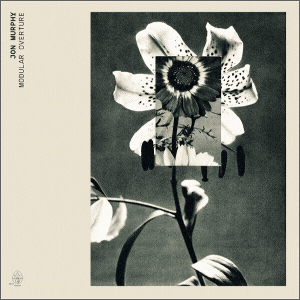The Magic Carpathians Project have released a number of enchanting albums and recordings since 1998, but Khemia, from 2019, is perhaps their most transformative. It pairs well when listened to back-to-back with the new 2024 release Alchemeia from the ever prolific Scanner.
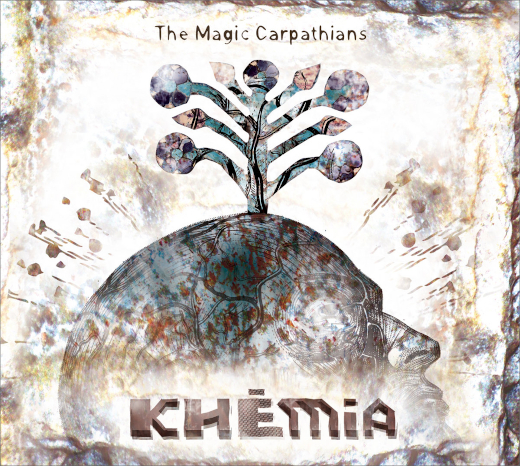
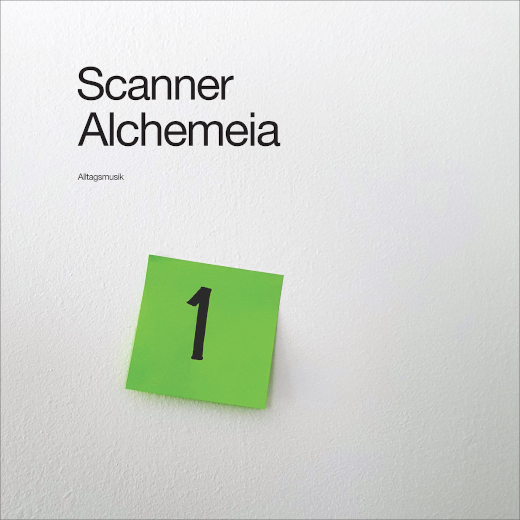
The basic building blocks of electronic music
The Magic Carpathians Project have released a number of enchanting albums and recordings since 1998, but Khemia, from 2019, is perhaps their most transformative. It pairs well when listened to back-to-back with the new 2024 release Alchemeia from the ever prolific Scanner. I’ve been following the Polish band on and off since I picked up their 2005 album Sonic Suicide: Ethnoise #1 (Tonevendor), where tracks like “Asylum on the Moon” and “Carpathian Herbs” blasted me into a world of European “ethnoise,” as they called their music via the names of certain series of releases. They have a catalog that is certainly worth digging into for anyone who likes to sit along the blurred borderlands between psychedelic rock, homemade electronic noise, ethereal, mesmerizing and soulful vocals, spiritualized rhythms, and ritualized folk music. Khemia does not disappoint in regards to any of these.
“Detritus A” begins with a low electronic bass throb before Anna Nacher begins her hypnotic spoken word recitation in Polish. I wish I knew the language, but at the same time, it doesn’t matter that I don’t, because the sound of her utterances are so reliable at being able to transport me into a transcendent zone. I also seem to pick up the “feel” of the Carpathian mountains that their project is named after. It’s a fragrant aroma of trees and plants after a cold hard rain that none-the-less leaves me feeling energized, vibrant, and invigorated. This makes sense when it is considered that founding member Marek Styczynski, works professionally with plants and supplements that knowledge with private ethnobotanical work of the plants native to the Carpathian mountains.
The second track, “Mull” continues with the enchanting vocalizations, a simple phrase repeated forming a bedrock, with the pitter patter of drums coming in over top of it, and then as counterpoint, the transportive lyrics, that ascend upwards in pitch, as organ tones thrum beneath. I am in a cathedral of the soul, and that cathedral seems to be a forest and land filled with rich black soil.
Like receiving a sonic dose of fecundity ::
Here is exhibited the alchemy of sound. First born in this Great Age of time in ancient Egypt, the word “khem” is used to denote the fertile floodplains surrounding the Nile River. This album reflects that fertility. Listening is like receiving a sonic dose of fecundity. Towards the end of “Mull” the male singing of Styczyński comes in on the low-end, in a manner similar to Tibetan overtone singing, that in part, informs Anna Nacher’s indelible style. The same rhythmic pulse that can be felt in the first two tracks continues in “Edafon,” unifying all the pieces together as electronic flourishes exacerbate and excite the air with their fluid oscillations in something of a synth solo that in turn becomes a duet with a shimmering organ. The Egyptians strongly believed in a life after death. Their entire society was organized around magic. The science and art of mummification, which made use of many substances and blended mixtures of plants, stones, and natural chemicals became a foundation for the practice of the transformation of matter and spirit. Alexander the Great conquered Egypt in 322 BC and the Greeks encountered the magic of the land of Khemia, the Greek word that means “Black Land” and their name for the country and elder civilization. It’s a fitting name for this album which is full of its own magic and seeming knowledge of secret arts.
“Moder” is perhaps my favorite track on this release, though as ever with great albums, it’s difficult to pick and choose just one. The pulse of hand drums with a gentle touch of echo and reverb, reminiscent of some percussion from the likes of the Sun Ra Arkestra, gels the song together with the high whine of an angelic Moog. Listening carefully, I can make out the words “bodhisattva” and “nirvana” in the recitation. The lyrics here are from The Heart Sutra of Prajna Paramita. This isn’t just casual music. This is sacred liturgy. In the last portion of the song the style of singing changes to the mantra, to the chanted. “Mull” which also contains Buddhist lyrics, in this case from Shantideva, A Guide to the Boddhisattva’s Way of Life, sung in Polish. More synths open up the middle way on the track “Mor,” a short liminal bridge to the last track on the album “Detritus B.” Detritus is an interesting word to use for song titles in an album related to the black land where alchemy was born. The Oxford English Dictionary defines it as, “Matter produced by the detritation or wearing away of exposed surfaces, especially the gravel, sand, clay, or other material eroded and washed away by aqueous agency; a mass or formation of this nature.” A newer, additional definition from the field of ecology came about in 1997 according to that arcane tome of words, meaning “non-living organic material, esp. as a source of nourishment.” Nourished is exactly how I feel every time I listen to an album by The Magic Carpathians, musically, artistically and spiritually. These musicians give songs to weary travelers as a form of hospitality.
Buttery electronics warbling around the edges ::
Another meaning of detritus is “waste or disintegrated material of any kind; debris.” It is with this possible debris in mind that we turn to Scanner’s album Alchemeia. This is newly out on Robin Rimbaud’s just-launched label Alltagsmusik, which is already proving to be exciting (the second album is Scanner’s expansive and minimal Phenol Tapes and promises of an alchemical collaboration to be released in the future).
In the 7th century Egypt was overtaken by a new force on the historical scene, the Arabs. They added the prefix ‘al-‘ to the word Khemi to create al-Khemia—again the Black Land, fertile with the accumulated dirt washed up over the ground during the annual flooding of the Nile. In one way, Scanner’s Alchemeia album could be described as crude. He even does so himself on the album notes, saying it was “written as a tribute to the early 1960s library music culture, applying crude techniques of electronic composition,” yet here, for me, it conjures up ideas of crude oil, of the black fossil fuels living deep within the land, that only became that way due to the transformation of matter over vast aeons of time. In the same way, using makeshift electronics and rudimentary tools, Scanner has taken the basic building blocks of electronic music and used them as his base metal to create musical gold.
“Scanner has taken the basic building blocks of electronic music and used them as his base metal to create musical gold.” ~Justin Patrick Moore
The pieces here are short, with the longest still being less than five minutes. One of the slogans Scanner uses as a tagline for his prolific works is “Flaneur Electronique.” With these short excursions that change swiftly from one thing to another he has become a “Flaneur Radiophonique.” Just as promised they call to mind the endless hours of short pieces of library music crafted at places like the Radiophonic Workshop for television and radio. Some of the key members of the workshop made many more hours and hours of library music produced by some of its key members in and outside of its home in Maida Vale. I’m thinking here of course, of Delia Derbyshire, but also Brian Hodgson.
Tracks like “Mikrophoniea” meanwhile recall the microphone experiments of Stockhausen, whose early visual scores inspired Rimbaud when he chanced upon someone studying them. One of my favorite pieces from this album is “Flexaia” a piece that haunts and soothes in equal measure. Other pieces like “Scincidae” are gritty, distorted, and full of surface noise and unknown bits and bobs while ones like “Sestinea” make trilling sounds reminiscent of journeys into retro-sci fi infused futures.
As such, the mood is liable to shift dramatically from one piece to the next, which is just what you want with library music because you never know what bit of radio, television, or film it might be used to go with. “Lithargea” is dark and sinister, whereas “Perspektivea” is buoyant and hopeful. “Vistea” is a happy and ebullient tune to end the album on, with pulses of what sounds like morse code, kalimba and buttery electronics warbling around the edges.
Like the workshop operators of the past, Scanner is fully at home in his laboratory, and more than able to assemble a unified whole of sound to work on spec and create what is needed, at the moment, for a production. Other parts sound like they may have been calcined and fused from spare parts and scraps left over from other assemblages. As such, he proves himself once again to be a remarkable alchemist of sound.
Khemia by Magic Carpathians Project is available on Bandcamp.
Alchemeia by Scanner is available on Alltagsmusik.











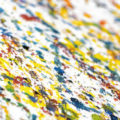
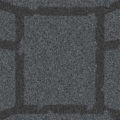
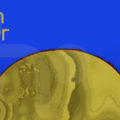
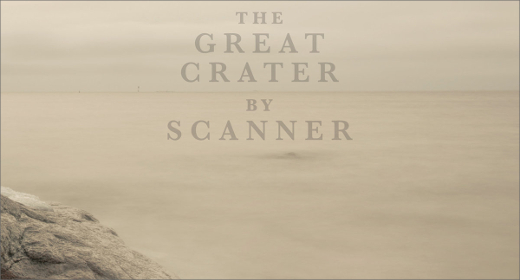
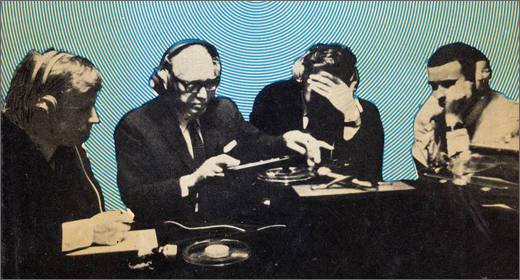







![Allmanna Town :: 1911 EP (Self Released) — [concise]](https://igloomag.com/wp/wp-content/uploads/2025/03/allmannatown-1911_feat2-75x75.jpg)


